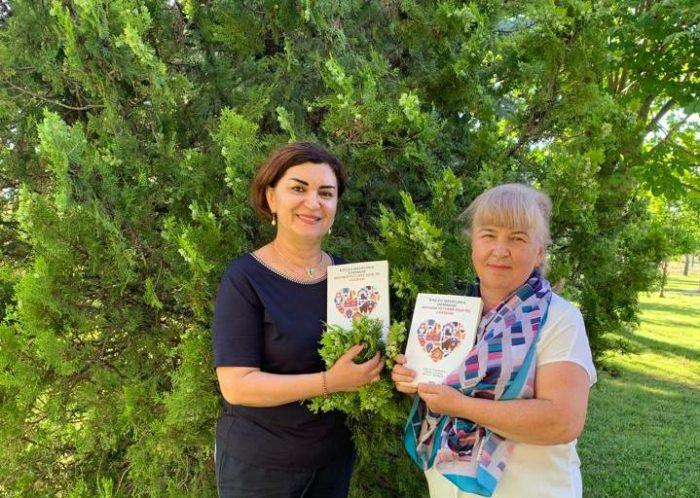KBSU in Russian fairy tales in Turkish language

2000 copies of the Russian language textbook «Learning Russian from Fairy Tales» can be found in bookstores and libraries in Turkey thanks to the efforts of the teacher of the Kabardino-Balkarian State University named after H.M. Berbekov. The authors of the book are Associate Professor of the Department of the Russian Language and General Educational Disciplines for Foreign Students of the Higher School of International Education of the Kabardino-Balkarian State University named after H.M. Berbekov Tamara Tanasheva, Professor of the Department of Russian Language and Literature, Faculty of Literature, Erciyes Sevinch Uchgul University and Senior Lecturer, Department of Turkic Philology, Institute of Asia and Africa, Moscow State University named after M.A. Lomonosov Yilmaz Mehtap.
“One of the ways of teaching a foreign language is the use of a fairy tale in teaching, especially at the initial stage of learning a language. The fairy tale brings a new perception of the people of the language being studied and adds a new meaning to the study of the language,” — said Tamara Malilovna, co-author of the books.
«Russian language in fairy tales» is the result of many years of experience in teaching the Russian language in Turkish and Russian universities of the authors. In this book, you can find adapted fairy tales about the chicken Ryaba, the greedy nobleman, Nikita Kozhemyaka, the wooden eagle, and many other heroes of Russian folklore. As the creators of the publication note, the book is designed for students of language universities, bilingual children and people who study Russian on their own, approximately at the level of Russian language proficiency B1 and above. The study guide includes the main part, a dictionary for lessons and keys to assignments.
The main part consists of texts, grammatical and lexical exercises aimed at activating vocabulary, systematizing and practicing grammar, developing reading skills, oral and written retelling, and conducting conversations on various topics. The tasks in the book are both traditional exercises and exercises in the form of tests, tasks for finding and correcting errors. In the course of mastering the materials of the manual, students will master everyday and colloquial vocabulary and introduce a large number of colloquial constructions into their everyday life, which is usually not enough at an advanced stage of learning the Russian language.

